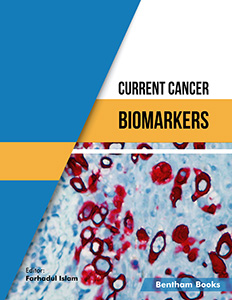Abstract
Cancer is a major health problem and a leading cause of morbidity and
mortality worldwide. The cancer burden can be reduced significantly using reliable,
robust, sensitive, accurate, validated and specific biomarkers for early diagnosis, better
prognosis and prediction. Traditionally, a number of biomolecules exhibit the potential
to be used as diagnostic, prognostic and predictive biomarkers roles, however, they
failed to be used in point-of-care settings for routine analysis. Recent advancements in
sequencing techniques and analytical methods facilitate the development of novel and
effective cancer biomarkers (liquid biopsies) with the fidelity of clinical application.
These biomarkers provide personalized “omics” based information on the pathological
state, molecular nature and biological aggressiveness of individual patients.
Nevertheless, standardized platforms and/or methods for these biomarkers are yet to be
established. Thus, adopting a combination of classical and new cancer biomarkers
would offer a better understanding of the disease, resulting in improved clinical
outcomes for patients with cancer.
Keywords: Biomarkers, Cancer markers, Cancer management, Cancer burden, Cell-free DNA, Circulating tumour DNA, Circulating tumour cells, Classical cancer markers, Clinical application, Diagnostic markers, Drug toxicity, Liquid biopsy, Non-coding RNAs, Predictive markers, Prognostic markers, Personalized treatment, Precise medication, Tumour-derived exosomes, Tumor-derived extracellular vesicles.






















